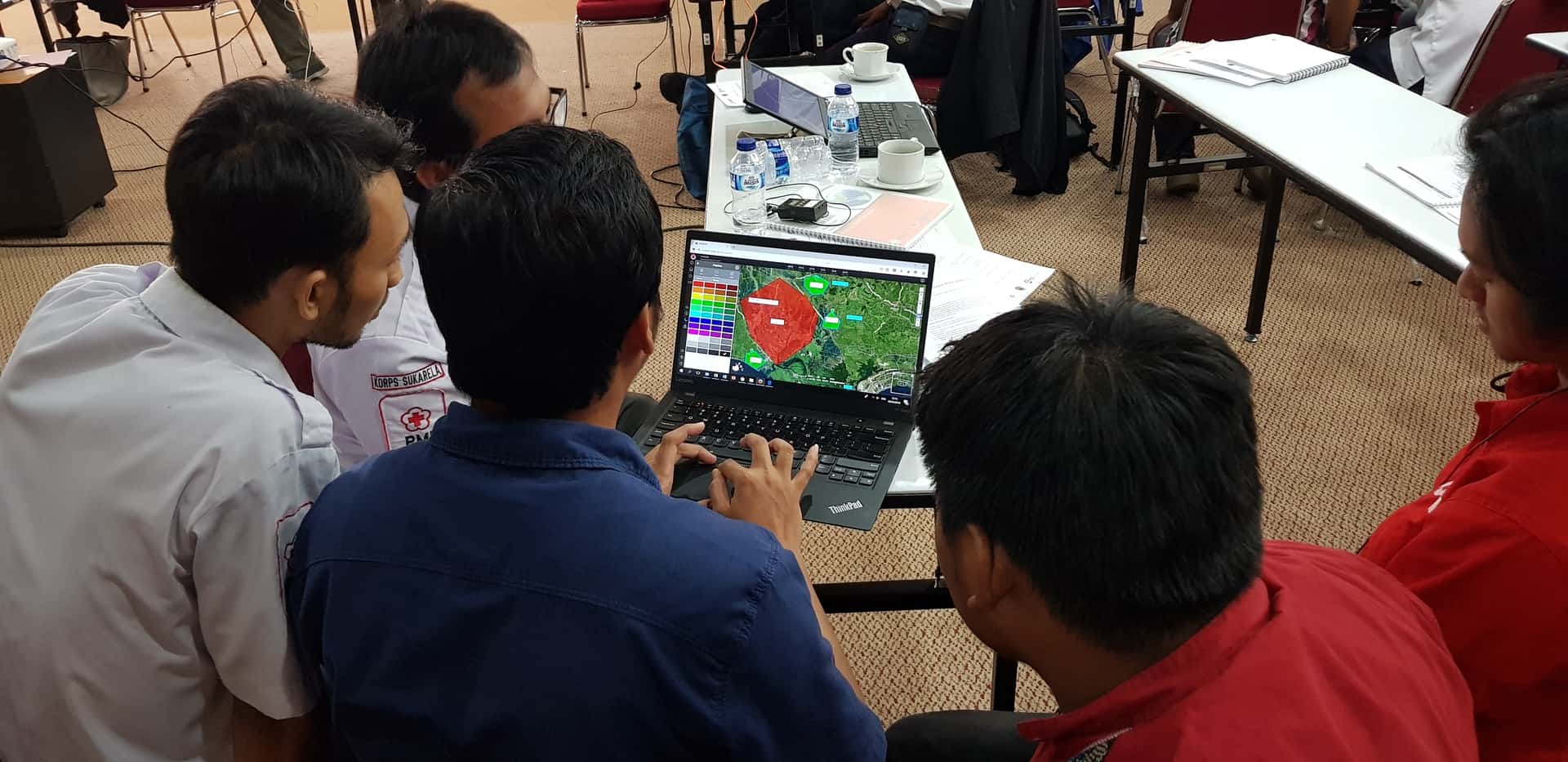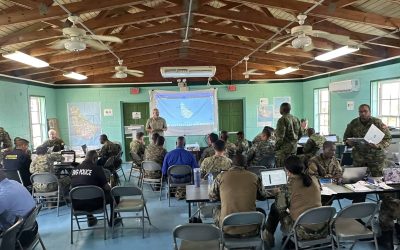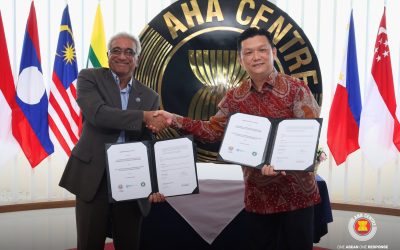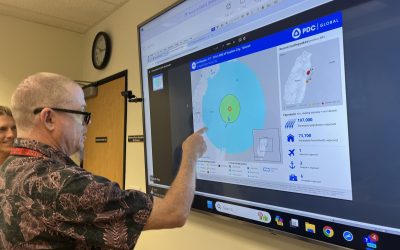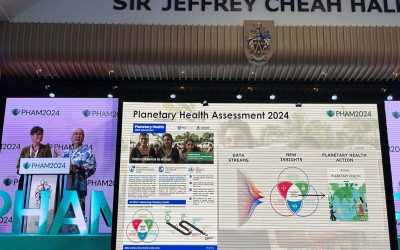Indonesia’s archipelagic nation is comprised of more than 7,000 inhabited islands which are exposed to the constant risk of volcanic eruptions, earthquakes, landslides, floods, and tsunamis—making disaster preparedness, response, and recovery unusually complex. Effective disaster management, particularly in this region, depends on collaboration between organizations who share a common mission to provide humanitarian assistance; which is why representatives from Red Cross recently underwent training with Pacific Disaster Center (PDC) and Indonesia’s national disaster management organization Badan Nasional Penanggulangan Bencana (BNPB).
May 8–9, PDC and BNPB partnered to conduct training for 21 members of the Indonesian Red Cross (PMI), American Red Cross (ARC), and International Federation of Red Cross (IFRC) staff members on the country’s InAWARE early warning and decision support system. Focusing on the application of information, data, and analytical tools within the system to aid decision making during response and relief, participants applied skills and knowledge through a number of realistic, scenario-based exercises. Training and exercises provided hands-on experience to help build skills to effectively use InAWARE, a system built on PDC’s powerful DisasterAWARE platform and launched in partnership with Indonesia through funding support from USAID’s Office of Foreign Disaster Assistance (OFDA) in 2014.
American Red Cross Disaster Management Manager, Rio Augusta commented that InAWARE and its data would significantly help them in both their disaster planning and response activities, noting that, “InAWARE is a powerful tool that will really support our disaster management activities and help us access relevant, up-to-date hazard information much more quickly than we’d been able to previously.”
The training exercises also served as an opportunity to reinforce previous “Train-the-Trainer” principles provided to Indonesia’s BNPB staff through earlier training activities conducted by PDC. Explaining the importance of cross-sector training, PDC’s Deputy Executive Director Chris Chiesa said, “The need for trained staff from across government, nonprofit, community, and private sectors is essential for effective disaster management. Training sessions like the one conducted with the Red Cross are helping to strengthen the capacity of Indonesia to prepare for and respond to disasters.” He said training with the Red Cross forms part of a wider institutionalization strategy for InAWARE, building upon previous training provided to nearly 800 staff members from BNPB, Provincial Disaster Management Agencies (BPBDs), as well as United Nations and intergovernmental and nongovernmental (I/NGO) organizations.
BNPB Supervisor for Spatial Data Processing Dian Oktiari commented about the project, saying, “Making sure the proper decision support tools are in the hands of readily trained responders from across government, private, and nonprofit sectors is essential for building resilience across Indonesia’s many provinces.” She said that by the end of the project it is expected that more than 1000 beneficiaries will be trained in the use of the InAWARE system, as well as an additional cadre of Trainers who will be qualified to provide InAWARE training to their colleagues and related organizations.
